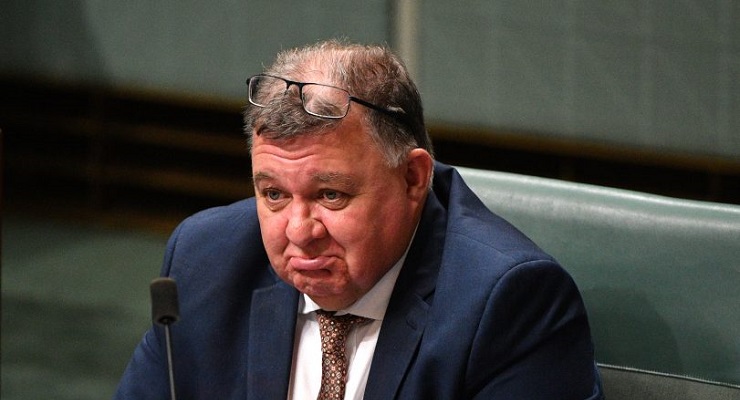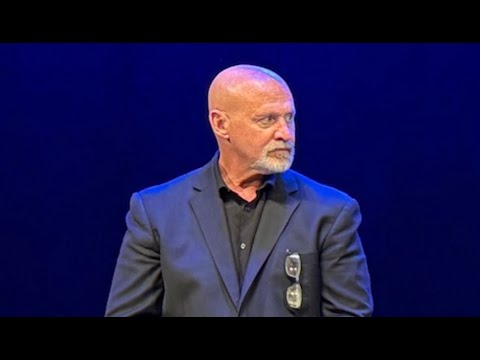When Craig Kelly showed his online followers a draft of a bill that would outlaw restrictions on anyone who doesn’t get a COVID-19 vaccine, the former Coalition politician shared a little more than he intended.
The document shows that Kelly wanted to pass a drastic law that would remove Australians’ rights, introducing significant international agreements into domestic law while also causing constitutional problems, as evidenced by private comments left by someone who was responsible for turning Kelly’s ideas into legislation.
On Monday evening, the independent MP sent a message about his proposed law to the 10,000 subscribers to his channel on Telegram, a barely-moderated messaging platform that has become a home to conspiracy theorists and extremists.
“Here’s the final draft of the No Domestic Vaccine Passport Bill,” Kelly said, and attached a copy of a file called:
The bill is part of his crusade against restrictions on those who refuse to get a COVID-19 vaccination. Kelly, who insists he is not an anti-vaxxer, has previously said he is not planning on getting his jab any time soon, shares content promoted by anti-vaxxers, associates with anti-vaxxers, and has spent the last year-and-a-half promoting unproven or disproven COVID-19 treatments.
His bill would stop the proposal for a vaccine passport that would allow unrestricted domestic travel or any other restriction for those who do not get vaccinated.
It’s not unusual for a politician to publish a copy of a draft bill prior to it being introduced into Parliament. But what makes this unusual is that Kelly posted a copy of the text that includes the drafter’s comments, providing some insight into the MP’s maverick approach to legislating.
The Office of the Parliamentary Counsel works with government and private members to draft legislation that can be introduced into Parliament. There’s often a back-and-forth between MP’s offices or departments and the office as they work together to translate a policy idea into a legislative document will achieve its intended purpose while avoiding any unintended consequences.
This process is clearly visible in the document posted by Kelly. The drafter refers to a conversation — “after our discussion I decided….” — between themselves and Kelly as they worked on the bill.
The comments show the drafter having to grapple with making Kelly’s hardline approach to restrictions based on COVID-19 vaccination status into a reality. Some comments hint at the impracticality of the bill.
“The bans on discrimination by government in clauses seven, eight and nine are absolute. Having such an absolute ban on discrimination by private citizens might go further than you want,” one comment said.
At one point, a comment politely reminds Kelly that the ability of people to decide who comes into their home — like the decision to refuse entry to someone who had not been vaccinated because someone who was immunocompromised and would face dire consequences if they caught COVID-19 — is a standard affair and is not a type of discrimination that is generally legislated against.
“The exception in subparagraph (a)(i) is usual in anti-discrimination legislation and recognises the right of people to control who comes into their own homes,” they wrote.
The drafter also points out that a previous version of the bill could have raised “significant constitutional issues” by placing restrictions on how states and territories treat their employees.
Naturally, the law defines vaccines to include medication including hydroxychloroquine and ivermectic, two drugs that he has endlessly promoted to treat COVID-19 despite a lack of compelling evidence.
Ironically, Kelly, who has frequently criticised international bodies like the UN and WHO in the past, cited international agreements such as the International Covenant on Civil and Political Rights and the International Covenant on Economic, Social and Cultural Rights as justification for the law’s powers.
In doing so, it appears that Kelly sought to ratify these international agreements into domestic law in this bill. The drafter explains that the latest version of bill wouldn’t take this rather large step.
“This bill does not incorporate those covenants into Australian domestic law; it merely conforms Australian law to those obligations, to a limited extent,” it says.
Ultimately, the drafter notes that Kelly’s hopes for an expansive law that would put an end to any discrimination based on COVID-19 vaccination status in the future would not possible.
“Of course, there is nothing this bill can do to prevent discrimination under a future act of the Commonwealth Parliament that expressly requires or permits such discrimination,” they said.
Help us keep up the fight
Get Crikey for just $1 a week and support our journalists’ important work of uncovering the hypocrisies that infest our corridors of power.
If you haven’t joined us yet, subscribe today and get your first 12 weeks for $12.
Cancel anytime.

Peter Fray
Editor-in-chief of Crikey








